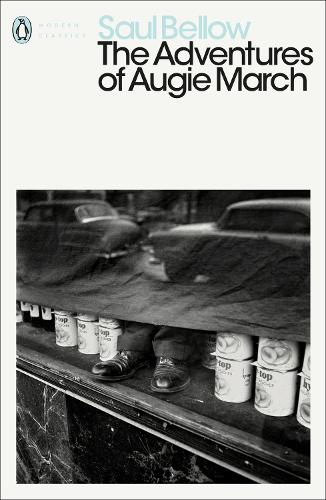
The Adventures of Augie March
(Paperback)
Available Formats
Publishing Details
The Adventures of Augie March
By (Author) Saul Bellow
Introduction by Christopher Hitchens
Penguin Books Ltd
Penguin Classics
27th June 2001
26th April 2001
United Kingdom
Classifications
General
Fiction
813.52
Physical Properties
Paperback
592
Width 130mm, Height 198mm, Spine 24mm
411g
Description
Augie March is a poor Chicago boy growing up during the Great Depression. A 'born recruit', he latches on to a wild succession of occupations, then proudly rejects each one as too limiting. Not until he tangles with the glamorous Thea, a huntress with a trained eagle, is his independence seriously threatened. He goes on to recruit himself to even more outlandish projects, but always ducks out in time to continue improvising his unconventional career. Augie March is the star performer in a richly observed human variety show, a modern-day Columbus in search of reality and fulfilment.
Reviews
Astonishingly and tremendously entertaining -- The New York Times
A rollicking, perplexing, astounding whopper of a picaresque novel * Chicago Sunday Times *
Funny, poignant ... it is Bellow's fat comic masterpiece * Augie March *
The great novel of the young person * Harper's *
Author Bio
Saul Bellow was born in 1915 to Russian emigre parents. He published his first novel, The Dangling Man, in 1944; this was followed, in 1947, by The Victim. In 1948 a Guggenheim Fellowship enabled Bellow to travel to Paris, where he wrote The Adventures of Augie March, published in 1953. Henderson The Rain King (1959) brought Bellow worldwide fame, and in 1964, his best-known novel, Herzog, was published and immediately lauded as a masterpiece, 'a well-nigh faultless novel' (New Yorker). Saul Bellow's dazzling career as a novelist was celebrated during his lifetime with an unprecedented array of literary prizes and awards, including the Pulitzer Prize, three National Book Awards, and the Gold Medal for the Novel. In 1976 he was awarded a Nobel Prize 'for the human understanding and subtle analysis of contemporary culture that are combined in his work'. Bellow's death in 2005 was met with tribute from writers and critics around the world, including James Wood, who praised 'the beauty of this writing, its music, its high lyricism, its firm but luxurious pleasure in language itself'.
